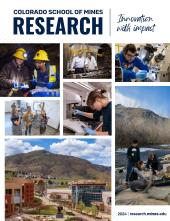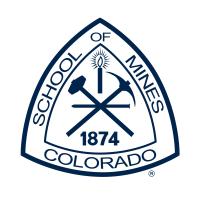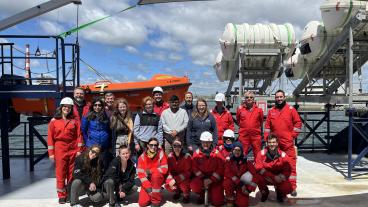Payne Institute helping to keep Native American sovereignty at heart of energy transition
Native American Mining and Energy Sovereignty Initiative launched in 2023 as part of Payne Institute for Public Policy


By Sarah Kuta, Special to Mines Research Magazine
The energy transition is a major undertaking that requires collaboration from all corners of industry — from oil and gas to solar and wind.
But some of the most important — and potentially overlooked — stakeholders are Native Americans in the West. The majority of critical minerals in the United States, like nickel, cobalt, copper and lithium, which are important components of future energy technologies, are located on or near Native lands, which means Native leaders play an essential role in the country’s energy future.
Historically, however, mining on Native lands has been harmful to Native American communities, with injustices ranging from environmental disasters to deadly health problems and more. The relationship between mining companies and Native nations needs to change.
That’s where the new Native American Mining and Energy Sovereignty (NAMES) Initiative at Mines comes in. The initiative, which launched in August 2023 as part of the Payne Institute for Public Policy, aims to help carve a new path forward by supporting the self-determination of Native nations, fostering dialogue and advocating for more collaborative partnerships.
“In talking with tribal leadership, what we’ve realized is that they are not against the opportunities that come with energy and mineral development but that there has to be a new way to go about it that’s very different from how things were done in the past,” said Rick Tallman ’85, MS ’93, the initiative’s program manager. “And part of that is just recognizing the absolutely horrific, full history.”
As the name suggests, Native sovereignty is the initiative’s primary focus and the starting point for any and all conversations about energy, mining development and finance on Native lands.
“This initiative isn’t pro-mining or pro-energy development—it’s pro knowledge,” said Tallman. “We’re focused on empowering the tribes so they can make the most informed decisions, to do whatever they want to do, as is their sovereign right.”
But Tallman and other partners believe that knowledge should flow in both directions — to and from Native nations. To bring more Native insights to campus, the initiative hopes to facilitate the creation of a president’s council on Native American affairs during the next school year. NAMES also organized a symposium that brought together industry and Native leaders on the Southern Ute Indian Reservation in Ignacio, Colorado.
In the future, NAMES also hopes to launch a fund to support research and development in energy and minerals that’s relevant to Native nations, as well as develop more STEM activities, curriculum and programs for Native American students. Another goal is to set up a process for offering technical assistance to Native communities.
The initiative is still in its infancy but, already, several industry partners have signed on, including Ivanhoe Electric, Resolution Copper and BHP. NAMES is still looking for additional external partners to join its efforts, including industry executives who are interested in participating in collaborative discussions and sponsors that can provide financial support.
The Payne Institute also appointed Richard Luarkie as the director of NAMES. Luarkie’s career spans roles as a tribal leader, entrepreneur and business strategist, including serving as a two-term Governor for the Pueblo of Laguna in New Mexico. His expertise encompasses competitor analysis, business capture strategy, technology transfer and commercialization.
“The idea isn’t to try to prescribe an answer,” Tallman said. “It’s to understand the power of the process, and, if it’s an inclusive process from the beginning, it actually provides better results.” Learn more about NAMES and how to get involved at payneinstitute.mines.edu/names.




